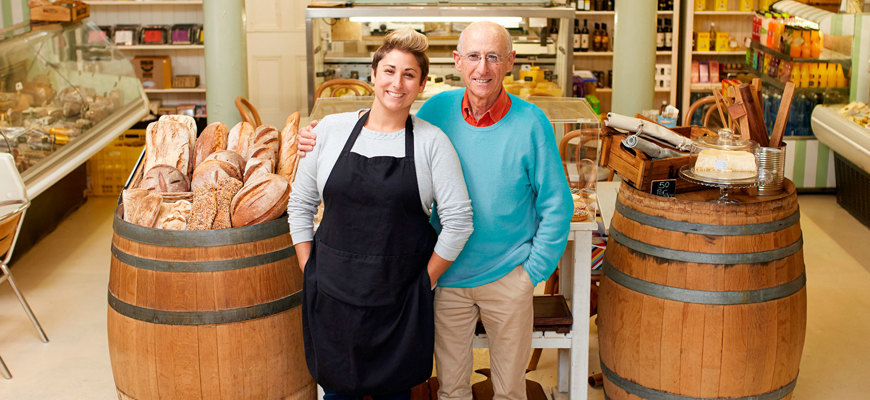Could you help family businesses?

Families have been in business since the beginning of history, but only recently have family businesses been recognised as a distinct type of client. The good news for advisers is that these clients are increasingly seeking creative advice. The interesting challenge is how to take advantage of this opportunity.
In other good news for advisers, there is plenty of new knowledge out there. For example, the Family Firm Institute (FFI: www.ffi.org/education) provides certificated learning programmes, as does the Society of Trust & Estate Practitioners (STEP), through their Advanced Certificates in Advising the Family Business and Family Business Governance.
Family business owners and leaders are avid consumers of this new knowledge. The Family Business Network (www.fbn-i.org/) has member associations in 65 countries and a membership of some 4,000 business families encompassing 16,000 individuals. Since each business family knows many others, this knowledge spreads quickly through peer learning, popular among families who want to emulate those who have achieved multigenerational success. For them, the world offers more hope than is expressed in mean-spirited clichés, which claim that every family business is doomed to fail over three generations.
Crucial overlap
The new approach to family businesses accepts that, above all else, every family in business has to cope with various challenges caused by the overlap between family and business life. This is the reality that makes family businesses different from other types.
For example, employing a family member will often stir up discussions about talent, fairness, reward and nepotism, and possibly cause arguments between relatives competing for the same job. Would you like to help this client?
This could easily be approached as an opportunity to draft an employment contract, combined with some tax advice; job done and move on, hopefully to the next family business who would like to purchase the same outcome. Undoubtedly, family businesses will always need specialist advice because the world is a complex place, but the challenge they are now offering advisers is, can you go beyond this conventional approach?
Business families would like to hear from you if you can create a policy on employing family members that governs these sensitive decisions in a way that balances the interests of the family and their business.
They would also like to know if you can advise on an incentive scheme for non-family management that is aligned to achieving all the returns on investment that the family value. These usually include non-financial returns, like preserving a legacy of attachment to a particular type of business activity or a geographical location. If this opportunity sounds interesting, a good place to start would be to review the piles of literature on the importance that family businesses attribute to socio-emotional wealth, another characteristic that makes them unlike any other type of business.
Changing specialism, some families want to use an ownership trust but want to ensure that it will be a vehicle for entrepreneurial wealth creation rather than wealth preservation. They also want beneficiaries to be actively involved in governing their business rather than becoming passive and disenfranchised owners. What help can you offer?
Anyone who would like to be the trusted adviser to a family business would have a desire to help with this decision making, and would never take the commercial risk of waiting on the sidelines until the family need to choose one of the many specialists who could implement their decisions.
Dealing with the “soft” stuff?
Advisers should, of course, expect to be asked to demonstrate their experience. It is easy for most advisers to say that they already act for family businesses, for the simple reason that it is difficult to avoid these clients. According to the Institute for Family Business there are 4.8 million family businesses in the UK, of which more than 18,000 are medium and large businesses. They generate over a quarter of UK GDP and employ 13.4 million people, approximately 50% of private sector employment.
However, nowadays family business clients will expect more from advisers than a track record of other clients and a particular specialism. Is this where soft skills become important?
“Soft skills” describes an indistinct cluster of personal characteristics and experiences that enable advisers to interact more effectively with clients and cope with the relationship side of things. They are contrasted with the “hard skills”: the adviser’s hard-won knowledge and expertise. But in the following example, what really deserves to be described as the hard and the soft stuff?
A family fear that the absence of a workable succession plan for ownership and leadership of their business will lead to loss of money, status and reputation. They also fear that starting to discuss a plan will stir up conflict, and make people feel vulnerable, anxious, and frustrated, partly through the effect the business is having on family relationships and the way some family issues are played out in the business.
This family business needs a lot of help. It is mindboggling, however, to think that dealing with fear, loss, conflict, vulnerability, anxiety and frustration could ever be described as soft stuff. Many family businesses would suggest that for them the soft stuff is the hard stuff. They would like help from advisers who can demonstrate an understanding of these needs and who can place them, rather than the adviser’s specialism, at the centre of the offer.
Not for the generalist
The question still is, would you like to help family businesses?
The idea of being the trusted adviser to all members of a family and their business sometimes generates nostalgic memories of the general practitioner. This species of adviser, however, has become largely extinct and it is unlikely that such retrospectives will support the challenge of serving today’s family businesses.
However, nor can all the challenges in a family business be reduced to a series of problems to which separate specialists provide discrete technical answers. While family business affairs are too complex to be served by a single adviser, specialists will be of limited value if they work only in their specialist silos.
Serving the family business client is inevitably a multi-disciplinary activity. Of course, many specialists already work in a team of sorts.
They share information and intermingle advice, but still mostly this is transaction based and each specialist contributes to the team by focusing on their respective area.
Team approach
Imagine, however, if it was like this:
- The advisory team have a clear, shared understanding of the family’s overall vision
for their business. This includes the financial return they want and the non-financial returns that they value. - The team shares information to reduce costs to the client if they had to repeat the same things many times over.
- The team can provide concise, consolidated reporting on the business and the family’s private affairs, if requested.
- Fee structures never clash, and the team agree to share some revenues depending on overall performance rather each adviser billing in isolation.
- It is clear how team members are appointed, appraised, and if necessary, removed.
- Team leadership is shared, and transfers depending on the matters being dealt with at any time.
- No one tries to become the gatekeeper because the team knows that ultimately the family business client needs all of them to work together.
Is this type of multi-disciplinary team desirable? The client-centric way to frame this question is, what type of team does a family business need? If the answer is the type just described, the question becomes, are advisers able to do what is necessary to deliver for these clients?
The size of the family business market emphasises the scale of opportunity for firms who want to commit to this sector. This means investing in training in the new knowledge and in developing effective ways to collaborate internally, and across different organisations. It entails focusing on the needs of a family and their business and anticipating the challenges as ownership and leadership pass across generations. And it is about grappling with the reality created by family and business relationships always interacting.
The question remains, would you like to help?
Case study: could you help?
Tom Wilson is managing director and owner of a second-generation family business started by his late father.
Tom’s brother never entered the business and his father’s decision to leave all the shares to Tom resulted in a rift between the brothers.
Tom and Mary have three children. The youngest, David, joined the business straight from school, while his siblings Eleanor and John pursued careers elsewhere, and have their own families.
Tom would like to retire, but feels financially vulnerable because over the years he has reinvested a lot in the business. Tom and Mary are also concerned about their children.
A friend suggested that “obviously” all the shares should go to David because he works in the business. However, Tom remembers how this approach caused a split with his brother and does not want the same thing to happen. Tom and Mary would prefer to divide the shares equally among their children. In any case, maybe Eleanor and John will one day join the business, an outcome that Tom and Mary subtly promote at family get-togethers.
Tom’s doctor recently recommended that Tom should take things a bit easier. Tom decided not to share this advice with Mary because it would worry her. Unknown to Tom, however, John recently told Mary that it seems likely that he and his wife will divorce.
An incomplete list of the challenges facing the Wilson family would include:
- How can Tom and Mary harvest money from the business to fund the next phase of their lives and look after their health?
- What does retirement mean to Tom, and does the rest of the family agree with his opinion? Does he want to walk away from the business or retain some involvement?
- How will David feel? Does he want to assume control, or would he like dad to remain involved?
- In future what will the owners do, especially if Eleanor and John inherit shares but resist the hints to come and join the business?
- What effect will John’s news have on future planning?
- Do David, Eleanor and John want to be in business together, at all?
The Wilson family would like to hear from you if you are able to help them as a family, as individuals and as a business.







